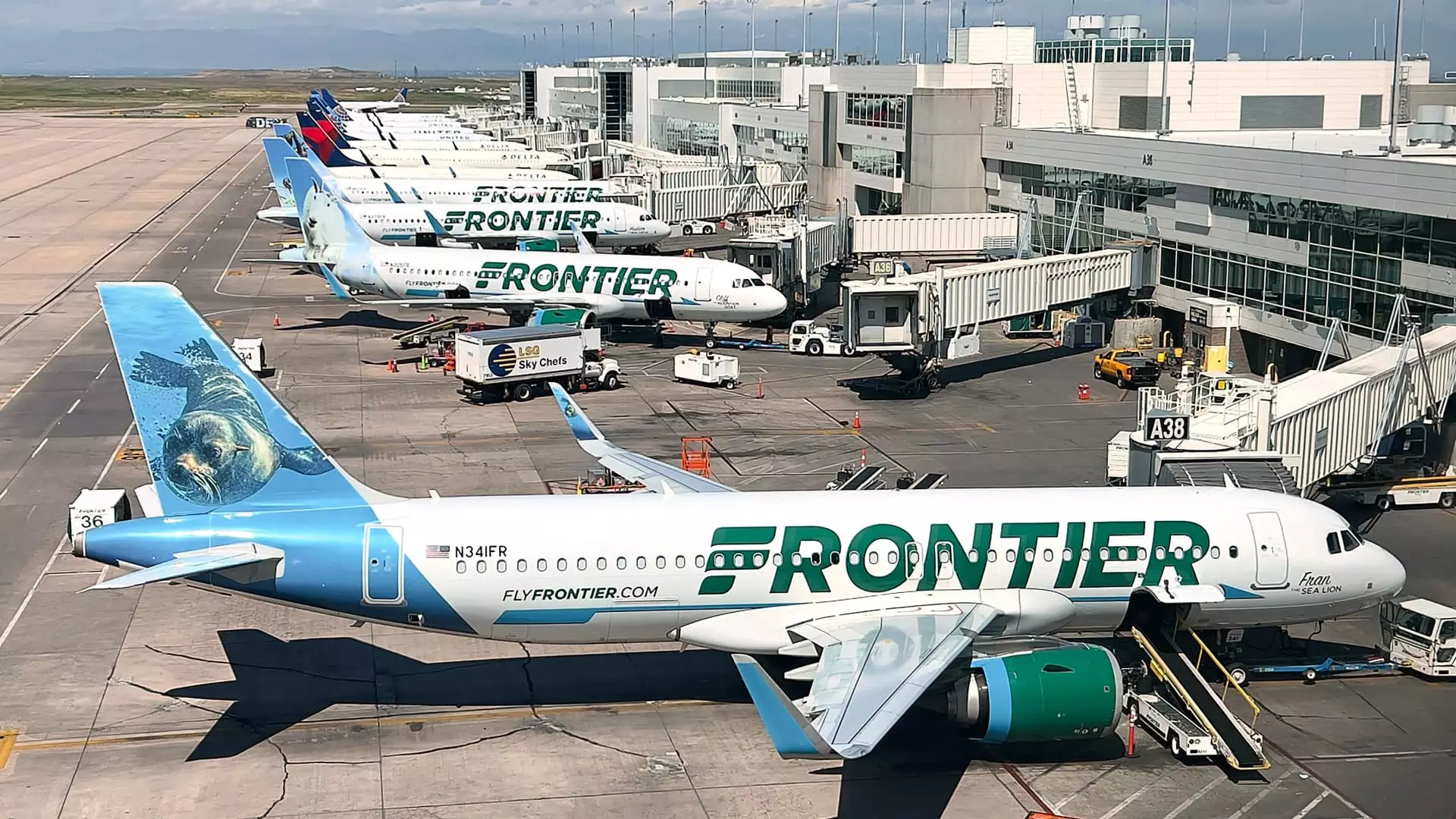Frontier Airlines, recognized as one of the largest low-cost carriers globally, is undergoing a significant transformation to enhance its competitive edge in the airline industry. By introducing first-class seating, the Denver-based airline aims to attract customers willing to invest in more luxurious travel options. This strategic pivot reflects a broader trend in the aviation market, where airlines are increasingly catering to travelers who prioritize personal space and comfort during flights.
Starting September, Frontier Airlines will commence the removal of the initial two rows of its conventional three-by-three seating arrangement to accommodate four exclusive first-class seats. This new layout will feature a two-by-two configuration, allowing customers more privacy and comfort. This move is particularly noteworthy given that low-cost carriers have traditionally focused on maximizing passenger numbers over enhancing amenities. CEO Barry Biffle expressed optimism, suggesting that these changes will resonate well with customers on longer flights, especially cross-country routes where legroom and comfort become paramount.
In tandem with the introduction of first-class seating, Frontier is revamping its loyalty program. Higher-tier members will now enjoy complimentary seat upgrades when available, along with free companion tickets for platinum and diamond-level members. Ultimately, this strategy aims to differentiate Frontier from competitors by enhancing the value provided to loyal customers. The airline also plans to implement a system in mid-2025 that will allow customers to redeem miles for seating upgrades and baggage fees, further emphasizing its commitment to enriching the passenger experience.
Financially, Biffle anticipates that these new initiatives could generate an impressive $250 million in revenue by 2026 and surpass $500 million by 2028. His recognition of Frontier’s current revenue limitations highlights a critical moment for the airline, as it shifts focus from being the lowest-cost option to developing a balanced revenue model that also prioritizes customer satisfaction. The competitive landscape reinforces this necessity. Major airlines, including Delta and United, have been investing heavily in enhancing their first-class offerings, prompting low-cost carriers like Frontier to adapt or risk losing market share.
Despite these advancements, Frontier faces significant challenges. Competing with established airlines that provide extensive services—such as full meal offerings and comprehensive in-flight experiences—will be a tough battle. Furthermore, other airlines, like Southwest and Spirit, are also evolving their seating strategies to include more spacious options and additional perks. For instance, Southwest’s plan to introduce extra-legroom seating coupled with assigned seats represents a significant shift for a carrier known for open-seating policies.
Frontier Airlines’ decision to embrace first-class seating and revamp its loyalty program signifies a pivotal shift in its business model. By focusing on customer comfort and experience, Frontier aims to establish itself as a competitive force among both low-cost and traditional airlines. With the airline industry rapidly evolving to cater to higher-paying customers, Frontier’s reforms may well represent a critical step towards aligning its services with contemporary traveler expectations and maximizing its market potential.

